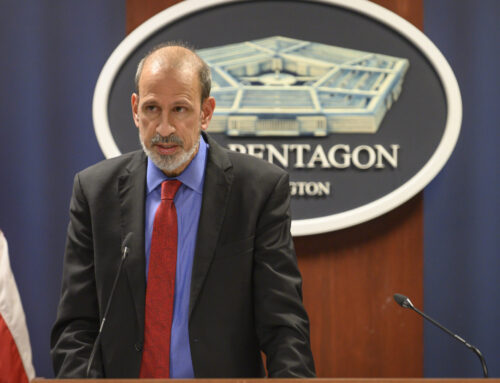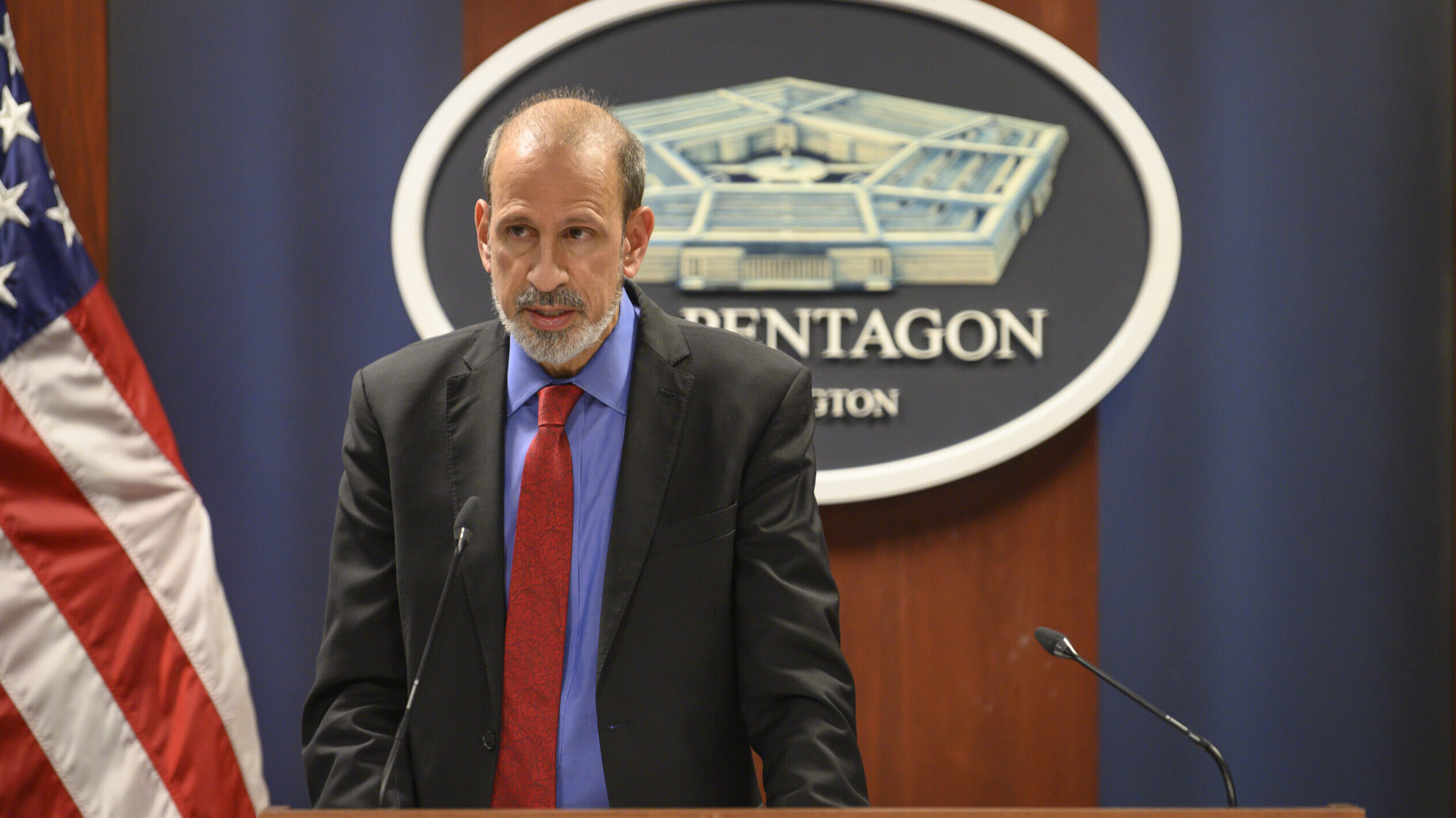Radha Iyengar Plumb, the Chief Data and Artificial Intelligence Officer. (DoD photo by Lisa Ferdinando)
WASHINGTON — The Pentagon’s AI chief, Radha Plumb, wants more small, innovative companies to develop cutting-edge software for the Department of Defense, from the back office to the battlefield. But to make that happen, Plumb acknowledged Friday, she’ll have to assure them their trade secrets will be safe — not just from the government but from prime contractors.
It’s a solvable problem, but it’s not yet solved, said Plumb, the Pentagon’s Chief Digital & AI Officer, and her organization can’t solve it alone.
“This is actually a work in progress,” Plumb said during a DCODE webinar on Friday morning. “We’re really open to feedback here.”
In many cases, “we can solve things with more standardized contract language,” Plumb said, “but we’ve got to be a lot more explicit about … what do those data rights look like? That level of detail is what we’re trying to work with industry on.”
At stake is Plumb’s signature initiative, called Open DAGIR, which aims to move military AI and big data beyond their current dependence on a handful of prime contractors, opening the door to a wider world of smaller firms.
“Imagine if … every time you wanted a new app, you had to buy an entirely new phone,” Plumb said. “That is what vertically integrated procurement in the Department of Defense was like.”
By contrast, Plumb’s plan is to emulate the app store on an Android or Apple phone, where many developers can sell different apps that run on the same device. In more technical terms, Open DAGIR aims to build an open architecture that decouples different elements to allow more competition and innovation from more vendors. So while DoD will still need the big primes to build the large-scale digital “infrastructure,” it should be able to plug-and-play individual software tools from whatever vendor into that framework.
But the different contractors’ pieces, small and large, all have to work together. That requires them not only to adhere strictly to common technical standards and APIs (Application Programming Interfaces), but also to share technical information with their competitors.
RELATED: ‘Success begets challenges’: NGA struggles to meet rising demand for Maven AI
It’s a complex three-body problem, Plumb explained. “We have data infrastructure that we [run] in a government-owned, contractor-operated way, typically with larger companies; we have government-owned data; and we have typically smaller third-party application developers. How do we manage that ecosystem with three parties?”
In at least one case, the Pentagon’s prized data-analytics platform Advana, the CDAO decided that small firms actually needed a software development environment provided by the government, rather than having to build their code, or at least test it, with tools provided by the prime contractor. “So,” Plumb said, “we have a technical initiative underway — we call it ADVANA 1.2 — to actually build up that development DevSecOps pipeline that is government-owned and overseen, rather than contractor [operated].”
In many other cases, however, Plumb thinks CDAO can solve the problem simply by writing better, “more explicit” contract language.
“One [solution] is to be really clear on who owns what; so we own the data, you own the IP rights for your application, the data infrastructure provider owns IP rights to that infrastructure,” Plumb said. “They owe you, as a third party developer, the details of how to connect with that infrastructure. And the government then needs to be clear, as you do the integration work, who owns the IP for that integration?”
These are complex legal and technical questions, and they’ll have significantly different answers for different projects, Plumb warned. For example, she said, Advana is moving from a single prime contractor (Booz Allen Hamilton) to a multi-vendor approach, which allows the government to have a direct contractual relationship with a large number of small firms. The military intelligence and planning AI known as Maven Smart System will retain a single prime (Palantir) but, in contrast to a traditional prime-and-subs arrangement, the government will be able to pick small firms and mandate that Palantir work with them as “directed” subcontractors.
All told, Advana and Maven will require significantly different contracting and subcontracting arrangements — and the AI projects CDAO is planning for the future may require other arrangements yet. It’ll take time to work out, and Plumb pleaded with industry for patience.
“I just want to start acknowledging the elephant in the room, which is the Department is hard to navigate,” she said. “It is big, it is cumbersome, it is especially hard for new companies and new entrants. Please don’t let that deter you.”
“We are working to be less hard to work with,” she said.











